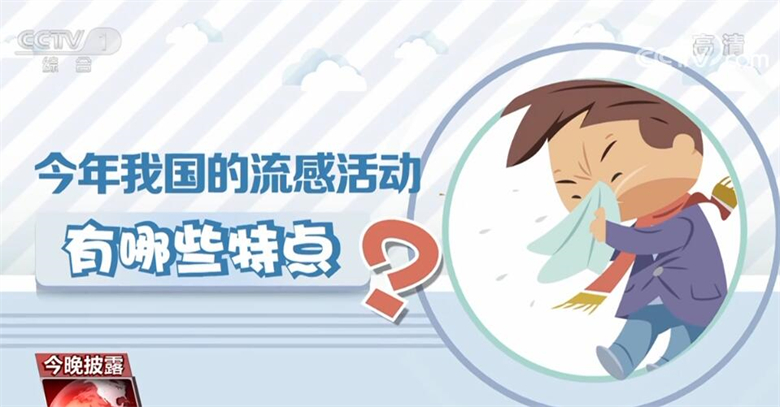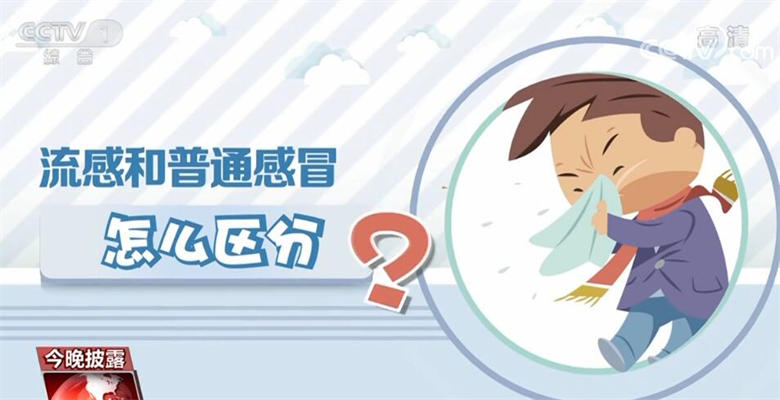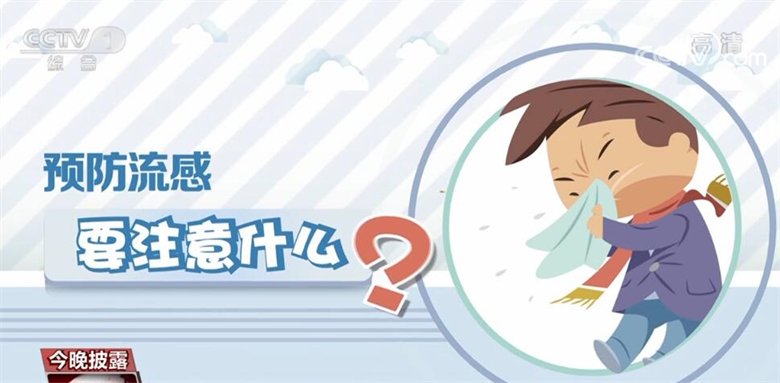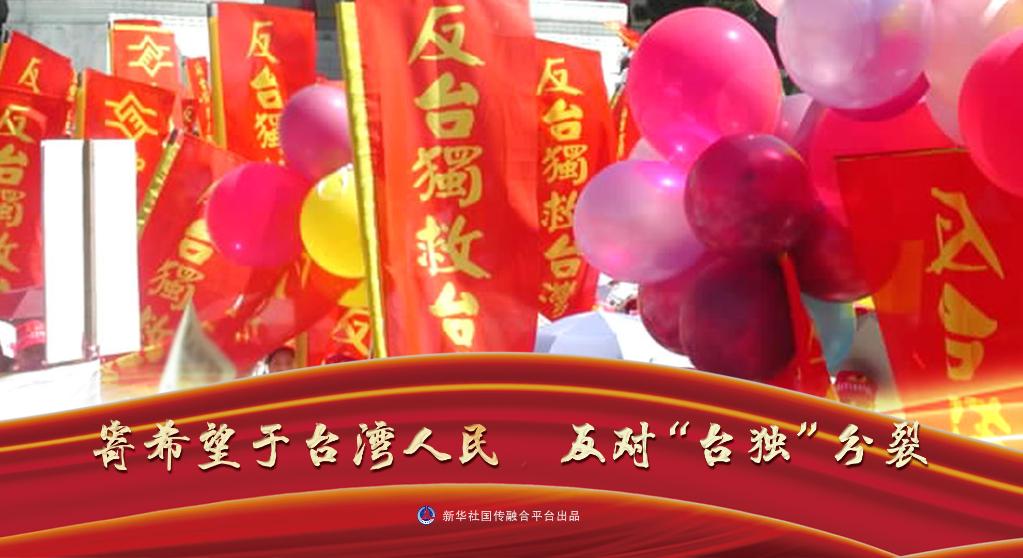8000 cases of postoperative inquiry! Cardiologists find strange signs of myocardial infarction
(Health Times reporter Wei Chuannan Health Times special correspondent in Beijing Chest Hospital Li Yun)In the past 20 years, more than 8,000 patients have been consulted after operation, and various premonitions before the onset of myocardial infarction have been found.
Professor Zhang Jian, director of the Heart Center of Beijing Chest Hospital, has always maintained a habit in his clinical work for more than 20 years. After each patient has finished the operation, he should ask them what improvements their bodies have made after the operation, what symptoms appear and what symptoms disappear. This question is more than 8,000 cases.
Among these more than 8,000 patients, he accidentally discovered many phenomena that were not mentioned in textbooks. An old gentleman, who had never opened his eyes for eight years, suddenly opened his eyes after heart surgery. A lady suddenly lost her hearing. After the stent operation, her hearing magically recovered. A middle-aged man was dizzy for more than two years. I don’t know how many times I ran to the neurology department, but I couldn’t find anything wrong. Later, after an operation for heart discomfort, my head suddenly became dizzy … …
"When a heart problem occurs, it is generally believed that there is chest pain. But in fact, heart problems can be manifested in the whole body, dizziness, headache, hearing loss, tinnitus, heavy eyelids, blurred vision, soreness and numbness in the left lower limb, and a feeling of chest banding. Symptoms may occur from head to toe, making heart problems hidden and complicated. It is difficult to diagnose, and patients are in danger and cannot be diagnosed, thus causing accidents. " Director Zhang Jian reminded that when there is a problem with the heart, the symptoms are sometimes unexpected.

Accidental rehabilitation
Heart surgery solved the eye problem.
There was an old man who found Director Zhang Jian because of angina symptoms. After doing cardiac angiography for the old man, he was diagnosed with high stenosis of the anterior descending branch and needed stent surgery.
Before the operation, the old man’s son said that he hadn’t opened his eyes for eight years. Anyway, he needed to be hospitalized for this operation. Could you please ask an ophthalmologist for a consultation, first cure his eyes and then treat his heart?
After seeing the old man’s condition, the ophthalmologist diagnosed trichiasis. Simply put, eyelashes grow into the eyes, which irritates the cornea and makes the eyes hard to open. He said, "This treatment is simple. Let the old man go to the eye clinic for a minor operation and pull it out."
As a result, the old man was pushed out again after ten minutes in the clinic. The doctor said that I had to open his eyelids and pull out his eyelashes with tweezers to operate on him, but I couldn’t open the old man’s eyelids, and the strength was too great. I closed them immediately after opening them.
His son said, in this case, let’s treat the heart first. At ten o’clock that day, Director Zhang Jian finished the heart stent surgery for the old man. At twelve o’clock, Director Zhang Jian went to the ward to visit him. When he entered the door, he was very surprised because the old man’s eyes were open!
"This surprised me, because we didn’t do any treatment for the old man’s eyes during the operation. Therefore, I concluded that his eye problem was caused by heart ischemia, the blood supply to the heart was restored, the blood supply to his eye nerve was normal, and his eyelids were opened. " Director Zhang Jian introduced that this is the first patient he encountered with eye symptoms caused by cardiac ischemia.
A few years later, Director Zhang Jian met two very similar patients in the outpatient clinic. The first sentence of a woman who came to see a heart attack was, "Director Zhang, my eyelids are so heavy these two days that I can’t open them if I don’t want to. I feel like my eyelids weigh a few thousand pounds, and then I feel bored and weak."
As soon as Director Zhang Jian heard this, he thought of the old man before, so he gave her a piece of nitroglycerin in the clinic. After a while, the lady said, "Oh, my eyelid used to weigh 1,000 kilograms. Now it’s very easy. I can lift my eyelid!" .
Among Zhang Jian’s patients, not only the eye problems recovered unexpectedly after heart surgery, but also the ear problems of the patients, which were solved unexpectedly after heart surgery.
Ms. Su from Shandong once received a business trip and wanted to go to Hangzhou. Before boarding the plane, her hearing was normal, but after getting off the plane, her ears suddenly could not hear clearly.
At that time, she was examined in the otolaryngology department of a hospital in Hangzhou and was diagnosed with sudden deafness. After returning home from a business trip, Ms. Su went to the otolaryngology department of a hospital in Shandong. The doctor said that her condition was not sudden deafness, but hearing loss, and introduced an expert who was good at microvascular decompression.
When Ms. Su heard about it, she immediately contacted the expert. The expert first operated on Ms. Su’s left ear. As a result, after the operation, Ms. Su’s left ear was not only deaf, but also completely deaf. Now she didn’t dare to continue to operate on her right ear. She was afraid that both ears would be completely deaf, so she had to go home.
After a while, Ms. Su found something wrong with her cardiovascular system in a physical examination. Under the introduction of others, she found Director Zhang Jian, who performed heart stent surgery for her.
On the second day after the operation, Ms. Su was surprised to find that her hearing recovered. It turned out that her sudden hearing loss in both ears was a signal from heart ischemia!
Director Zhang Jian explained that the nerve distribution of the eyes, ears and cardiovascular system has certain correlation. When the cardiovascular system has problems due to atherosclerosis, it may affect the blood supply of the nerves in the eyes and ears, which may cause heavy eyelids and ischemic deafness. Therefore, the early signs of heart problems may be manifested as symptoms in these two places, which need attention.
Run the wrong department
Visiting respiratory experts turned out to be a heart disease.
From Hong Kong to Shenzhen, and then to Beijing, Mr. Li couldn’t breathe because of his chest discomfort. He went to several hospitals and was diagnosed with health problems, asthma and pneumonia respectively. It was not until he met Director Zhang Jian in Beijing Chest Hospital that he realized that his heart was out of order.
This gentleman was met by Director Zhang Jian during a consultation with his colleagues. At that time, director Zhang Jian was originally arranged to see another old man with heart discomfort. Mr. Li, who is in his 40 s, asked the director of respiratory department to look at the lung film for him to diagnose his illness.
When the respiratory expert saw that Director Zhang Jian was there, he said, "Heart and lung are not separated. Let’s take a look at this film." Director Zhang Jian said: "I don’t understand lung disease, so I won’t watch the film. I’ll ask about it."
When chatting with patients, Director Zhang Jian learned that he suddenly felt uncomfortable in his chest a few months ago. "Do you know the feeling of being entangled in transparent tape? My chest is now like being wrapped in a circle of scotch tape. It is very uncomfortable and I can’t breathe. " The patient said that he has a habit of getting up at six o’clock every morning and running for half an hour. This uncomfortable feeling will be fine as soon as he runs, but after he comes back from running for half an hour, he feels that his chest is turned up by scotch tape.
Mr. Li’s main career is in Hong Kong, so he went to see a doctor in Hong Kong first. The doctor gave him the conclusion that his health was fine. He didn’t believe it. How could he be fine if he was out of breath? He went to Shenzhen again, and then to Beijing. The doctors basically gave two opinions. One was asthma, but after Mr. Li was treated according to the asthma plan, his breath became more serious. Another opinion was pneumonia. He heard that Beijing Chest Hospital was better and came.
When Director Zhang Jian heard this, he thought that Mr. Li’s problem might not be his lungs, but his heart. He explained: "This symptom can’t be pneumonia, because inflammation is a substance, and it is impossible to walk for a while. Like this patient, it is not uncomfortable to run, but uncomfortable to run, so it will not be inflammation."
So, he asked the patient to go to the pharmacy to get nitroglycerin, and did a nitroglycerin test for him in the clinic. It took only four minutes, and he stood up from the sofa and said, "Director Zhang, the tape wrapped around my chest has disappeared!"
Later, after examination and diagnosis, Mr. Li was diagnosed with myocardial ischemia. After the operation, the feeling that his chest was twisted with tape never appeared again.

Regret death
Ignoring the heart distress signal from the leg
Heart problems will also be manifested as leg symptoms first, which was discovered by accident by Director Zhang Jian after an operation.
A friend called Director Zhang Jian one day and said that a relative in his hometown had a narrow anterior descending branch of his heart and wanted to see him for surgery. Director Zhang Jian agreed. After the cardiac stent surgery for patients, Director Zhang Jian routinely went to the ward to ask the patients what symptoms had improved. "This is my habit. I have to ask in detail about each of my more than 8,000 surgical patients. What improvements have been made after surgery, what symptoms have appeared, which symptoms have disappeared, and the summary of many symptoms can only be found after I continue to ask after surgery." Director Zhang Jian explained.
However, the patient replied, "There is no place to feel the symptoms relieved." Director Zhang Jian asked, "If you think about it again, isn’t there anything better in your body than before?" The patient thought about it, and said, "If you ask me, I think the problem on my leg has gone to 80%. In the past, my leg was uncomfortable and sore. I went to see a doctor everywhere in my hometown, went to the orthopedics, did CT, did MRI, looked at the lumbar spine, and checked the blood vessels, nerves, muscles, etc., but I didn’t find any problems. Later, I went to see a Chinese doctor, and I tried massage, acupuncture and cupping, but it didn’t improve.
Director Zhang Jian was deeply impressed by the patient’s answer, because he had never met a similar patient before, so in a later community clinic, he told the residents the patient’s story to remind everyone to pay attention to the heart distress signal from his leg.
After listening to Director Zhang Jian’s talk, an old lady made a special trip to find Director Zhang Jian after the lecture. She said, "You are right. My wife died like this a few years ago. He was fine when he got up that morning. In the morning, he suddenly said that his left leg was uncomfortable, painful, numb and bloated. Because of the severe pain, he and I went to the hospital to see a doctor with an orthopedic number and opened a lot of examinations. As a result, in the evening, people died. I quickly did an electrocardiogram and found out that it was a heart problem, but it was too late, and my wife died that night. " The old man regretted that if he had learned this knowledge before and went to the cardiology department in time that day, the outcome might be different.
"Of course, not all pain in the left leg is angina pectoris." Director Zhang Jian suggested that some leg pains can rule out heart problems.
Before that, he also treated a 76-year-old gentleman, saying that his leg hurt badly, especially his left leg, and he could hardly touch the ground, let alone exert himself. When brushing his teeth, he can only stand on his right leg, and sometimes he can’t persist in urinating, but his right leg is fine. The old man said that he had an angiogram six months ago, and there was about 70% stenosis, but he didn’t do it at that time. Recently, however, I have always been flustered, sweating, and blurred vision. He suspected that he was angina pectoris and came to the clinic.
Director Zhang Jian asked the old man to lie down and check. First, he lifted his right leg to 70 degrees, so Director Zhang Jian lifted his left leg again. Before it reached 30 degrees, the old man twisted with pain and could not raise it any more. The old man was given nitroglycerin, and his leg pain did not relieve. After reading his previous examination results, Director Zhang Jian basically determined that the pain in the old man’s left leg was caused by lumbar disc herniation and nerve compression. Lying flat and lifting your legs should not exceed 30 degrees, which is a typical symptom. Taking nitroglycerin has not alleviated it, and it can basically be ruled out that it is a heart problem.
Although the old man’s leg pain has nothing to do with his heart, Director Zhang Jian judged that the old man’s heart still has some problems, because the occasional blurred vision is a manifestation of insufficient blood supply to the brain. The stenosis of the anterior descending branch leads to a large area of heart ischemia, which will lead to a drop in blood pressure and blurred vision. The duration of his blurred vision is consistent with the characteristics of myocardial ischemia. In addition, the old man’s heart rate is too fast to reach more than 180, which will also lead to cerebral ischemia. Because of the complicated reasons for the high heart rate, Director Zhang Jian further made relevant examinations for him to clarify his condition.
Director Zhang Jian explained that the pain in the left leg did appear in some patients with myocardial ischemia. After improving the blood supply to the heart through treatment, the pain in the left leg disappeared. For this patient, although it was ruled out that leg pain was caused by myocardial ischemia, other heart problems were found in time.
Periumbilical pain
High-risk groups should suspect angina pectoris.
Director Zhang Jian reminded that the heart is like the main valve of human blood vessels. When there is a problem with this valve, the blood supply of many branches may be affected, so it is the first to send an alarm signal in other places. If you receive these signals and see a doctor in other departments, you can’t find the obvious reason. Don’t be careless. You must go to the cardiology department for examination and check the heart problems.
A Shandong patient, because of the pain around the umbilicus, looked for an expert in the digestive system to see a doctor. He first checked the digestive system in a local hospital and found no problems. I went to the provincial hospital for gastroscopy and enteroscopy, even capsule gastroscopy, and found nothing unusual. Later, he turned around and found Director Zhang Jian.
"When I saw this patient, I thought of a patient with periumbilical pain who had been rescued before. The patient was in a hurry. He began to have a stomachache after going out for a walk in the morning. At first, I thought it was a stomachache. Later, the pain around the navel became more and more intense, and I called 120 to the emergency department of a nearby hospital. In the emergency department, the patient was in his 50 s, with stomachache, cold weather and low body temperature, and he was highly suspected of angina pectoris. He was soon given an electrocardiogram, which really showed acute inferior myocardial infarction. Based on the principle of urgency, the ambulance sent him to me. Do coronary angiography, and sure enough, the right crown is 100% occluded! After the thrombus aspiration, the patient’s periumbilical pain disappeared on the operating table. "
Director Zhang Jian said that because of his previous experience, as soon as the Shandong patient arrived here, he first considered that he might also have angina pectoris. Later, angiography showed that 99% of his circumflex branch was occluded. After revascularization, his periumbilical pain quickly disappeared.
Director Zhang Jian explained that the recovery of myocardial blood supply and the disappearance of abdominal pain are synchronized in time, which means that some patients’ angina pectoris is manifested by periumbilical pain. Therefore, he reminded that periumbilical pain should be highly suspected of angina pectoris for high-risk groups with myocardial infarction!
The data show that the number of sudden cardiac death in China exceeds 500,000 every year, and 95% of sudden cardiac death occurs outside the hospital, and 80% of them occur at home. Therefore, early detection of symptoms of myocardial ischemia is very important for saving lives in time. Director Zhang Jian reminded us that we should open our minds to the understanding of myocardial infarction and angina pectoris, and not just focus on distressed chest tightness. If you are a high-risk group and have the above strange symptoms, you must have more strings in your mind. Is it a heart problem? Perhaps, the problem of a long struggle will be solved.
Reporter’s notes
Because of frequent communication with patients, Director Zhang Jian not only found strange signs of myocardial infarction, but also knew what patients needed and what patients could understand. It is also in this exchange that Director Zhang Jian found that everyone’s knowledge of heart health is far from enough. Therefore, he basically holds a lecture in the outpatient hall of the Heart Center of Beijing Chest Hospital every week, with the theme of popularizing heart health knowledge. "I hope that through the lecture, everyone will have a string in their minds. When there are some symptoms that seem to have nothing to do with the heart, we should think about whether there is something wrong with the heart, even if we go to the community to do an electrocardiogram nearby, sometimes we can avoid some accidents."
Director Zhang Jian’s lecture site is often packed. The existing chairs in the outpatient hall are all full, and many people are still standing in the back row. After more than an hour of lectures, few people leave halfway. Some old people even put on reading glasses and take out paper and pens to record carefully. "Director Zhang is the doctor who knows the most about health knowledge." An audience member said that listening to Director Zhang Jian’s lecture on health science is not boring, just like listening to a story. After listening to the story, the heart knowledge is also remembered.






















